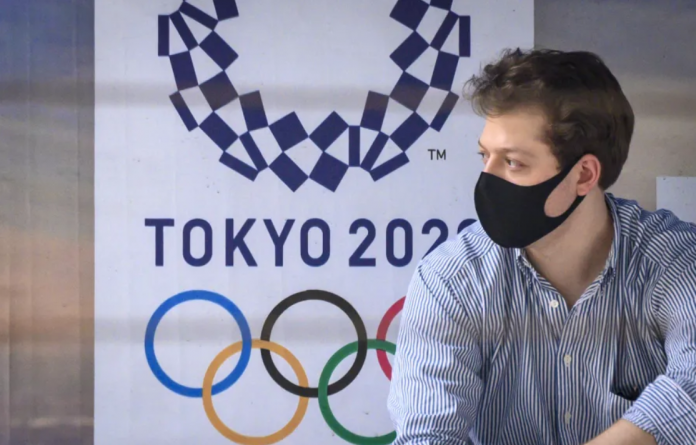The IOC is coming under increasing pressure to postpone the Tokyo Olympic Games after Spain insisted their competitors “can’t arrive in equal conditions” owing to the coronavirus outbreak and a reigning gold medallist described instructions telling athletes to continue to train as normal as “starting to become negligent”.
The International Olympic Committee confirmed on Wednesday it still expects the 2020 Games to begin on 24 July despite most global sporting events having already been rearranged. It was “counting on the responsibility and solidarity of the athletes” to deal with “an exceptional situation which requires exceptional solutions”.
Yet after Japan’s deputy prime minister, Taro Aso, admitted it “would not make sense” to host the Olympics if most athletes could not attend, the statement from the Spanish Olympic Committee president, Alejandro Blanco, was even more damaging to hopes of sticking to the original date.
“The decision is for the IOC [to make] after getting reports from the World Health Organization and the organising committee,” he wrote. “The news we get every day is uncomfortable for all countries in the world but for us the most important thing is our sportspeople cannot train and to celebrate the Games [as planned] would result in unequal conditions.” Blanco added: “We want the Olympics to take place, but with security. We’re an important country in the world and four months before the Games, our athletes can’t arrive in equal conditions.” The Spanish government has declared a state of emergency, with restrictions on movement and leaving the country.
Blanco’s statement came shortly before Sebastian Coe, the president of World Athletics, also expressed concerns about the Olympics proceeding on the basis that athletes from countries affected by the coronavirus outbreak later than others would be unable to compete on an equal basis.
“If you are living in Europe and you are an Italian distance runner and you are confined to your house, that is a massive challenge,” he told the Times. “Our sport has always been about fairness and a level playing field, so we shouldn’t feel ashamed to set that as our ambition. The reality is that may not be possible in every case. We don’t want athletes that are coming on stream for competition that have not been able to train for a couple of months while others may have come through it slightly earlier and are back in the mainstream.”
The cancellation of many qualifying events means 43% of the 11,000 competitors yet to book their spots in Tokyo will now be selected through modified qualifiers or previous performances based on ranking.
The IOC has also asked all athletes to continue to prepare for the Games “as best they can”, a request the reigning Olympic pole vault champion, Katerina Stefanidi, admitted had left many athletes feeling frustrated. “I believe their comments are starting to become negligent,” she told the Olympics Everywhere Newsletter. “I understand and want to believe that in Tokyo they will do the best they can to keep us healthy and safe. But they are telling us to keep training now? When the whole world is trying to avoid each other. How?
“I do not mean how practically, I mean how to do that safely? A lot of athletes train in big groups. How are swimmers supposed to train? Gymnasts who all touch the same instruments? Team sports? Even us pole vaulters that land on the same pit. It doesn’t exactly fill me with confidence that their tone and confidence hasn’t changed since their first statement about this in mid-January”
A survey in Japan found 70% of people believe the Games will be postponed, although Aso, who also serves as the finance minister, reiterated Shinzo Abe’s comments from the previous day that the government still hopes to host “a complete event as proof that mankind can defeat the new coronavirus”.
“As the prime minister said, it’s desirable to hold the Olympics in an environment where everyone feels safe and happy,” Aso said. “But that’s not something Japan alone can decide. It’s a problem that’s happened every 40 years – it’s the cursed Olympics – and that’s a fact.”
Japan had been due to host both the summer and winter Games in 1940 before they were cancelled owing to the second world war, with the 1980 Olympics in Moscow marred by the mass boycott in protest at the Soviet Union’s invasion of Afghanistan.
Yet with the IOC president, Thomas Bach, due to hold further talks with national committees over the next 24 hours, the prospect of Tokyo 2020 taking place as planned appear to be receding fast despite the governing body’s reluctance to follow the example of other major sports.
“It is not the role of WHO to call off or not call off any type of events,” said WHO spokesperson Tarik Jasarevic. “As each international mass gathering is different, the factors to consider when determining if the event should be cancelled may also differ. Any decision to change a planned international gathering should be based on a careful assessment of the risks and how they can be managed, and the level of event planning.”




















